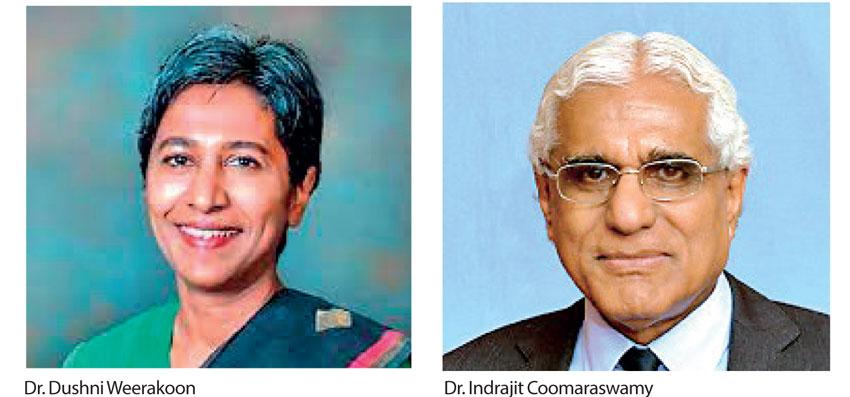24 Mar 2022 - {{hitsCtrl.values.hits}}

By Shabiya Ali Ahlam
Sri Lanka’s willingness to accept expert assistance to come out of the worst economic crisis since its independence puts the country on the right track but any positive outcome will not be reaped before a tough and painful journey, opine two leading economists.
They caution that the coming days are going to be more difficult but certainly less painful than what the outcome would have been, if the government continued to be stubborn and not reach out to the International Monetary Fund (IMF).
“We seem to have a plan, which goes beyond trying to grab money from wherever we can on a short-term basis and treating this as a liquidity problem while in fact, it is rather a deep solvency problem,” former Central Bank Governor Dr. Indrajit Coomaraswamy told a virtual investor event organised by CT CLSA.
“But things will get worse before it gets better. The interest rates will probably have to go up some more before they become positive in the real term. One could perhaps say the sequencing could have been a bit better, specially with the exchange rate,” he added.
While the authorities appear to have come to the right track in resolving the current crisis, Dr. Coomaraswamy pointed out three key areas, which the government cannot afford to get wrong—a well-negotiated programme with the IMF, restructuring external debt and getting bridging finance, which will help tackle the next six months.
The national economy is also in need of coordinated action on three fronts—the monetary policy front, exchange rate front and fiscal front, he added.
Although the first two components are being given some emphasis, the fiscal front, which is imperative, remains largely unattended.
“We can’t get away from doing fiscal reforms. This has to be at the front and centre of any attempt to overcome this problem. We have had this for years. The government’s fiscal operations have been the main source of instability in the system for decades. Now it is far more acute,” said Dr. Coomaraswamy.
The Central Bank has adopted a market-driven exchange rage but continues to miss the fiscal side, said Institute of Policy Studies (IPS) Executive Director Dr. Dushni Weerakoon expressing similar sentiments.
“As long as we neglect that, the progress we’ve made on the monetary and exchange rate front will not get us to stability. Because if the Central Bank continues to provide direct financing of fiscal expenditures, that will add to the monetary policy pressures, which in turn adds to the exchange rate pressure,” said Dr. Weerakoon.
Sri Lanka opts to be slow in the fiscal front as it is one of the most difficult aspects to tackle. However, addressing it cannot be put off for long, as fiscal adjustments will be a key focus of the IMF programme. The agency highlighted this aspect in its statement on the national economy that was released recently.
Dr. Weerakoon cautioned that these adjustments would not be easy. With Sri Lanka already being in a major downturn, there would be further pain before any improvements can be felt, she pointed out.
The fiscal adjustment will require the government to raise taxes, while on the spending side, it will require to freeze expenditures.
“Let’s not forget that these kinds of reforms are in some sense easier for an incoming government when their popularity is at its peak. Here we are in mid-election cycle with a severe economic fallout to be faced as well,” shared Dr. Weerakoon.
She stressed the need for the government to take proactive efforts to ensure that the economic hardships do not spill over into any kind of social unrest.
24 Nov 2024 2 hours ago
24 Nov 2024 3 hours ago
23 Nov 2024 23 Nov 2024
23 Nov 2024 23 Nov 2024
23 Nov 2024 23 Nov 2024